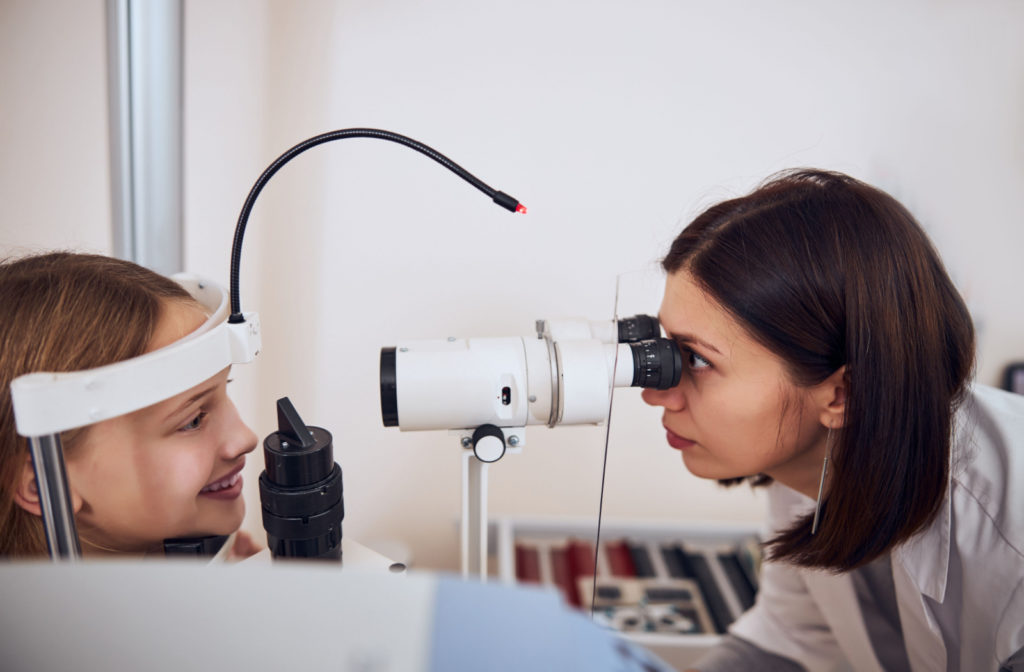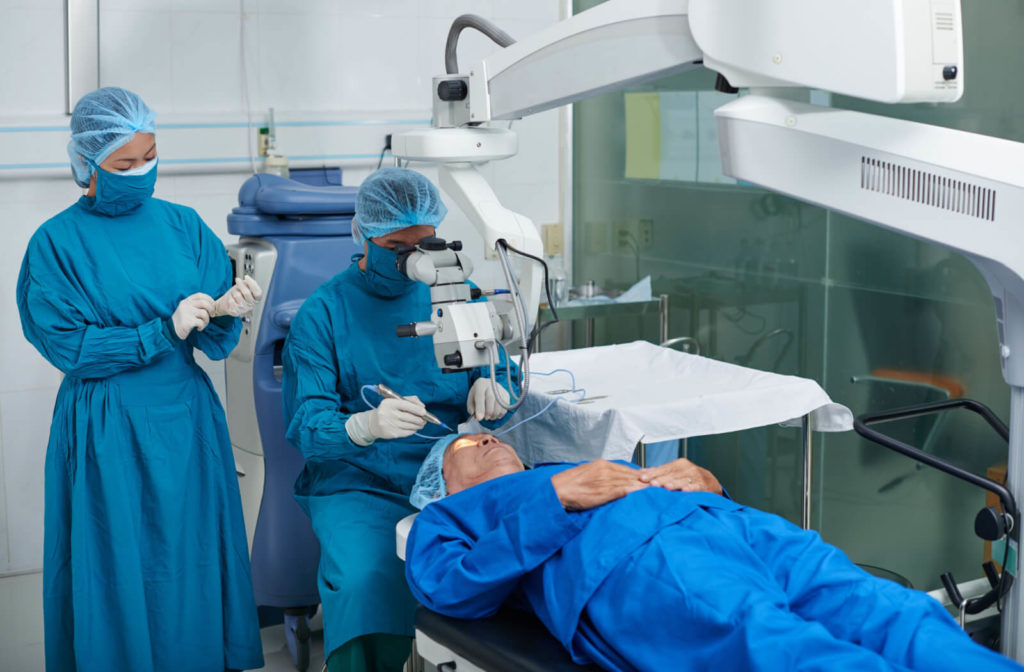Understanding the Comprehensive Role of an Optometrist in Modern Eye Treatment
In the advancing landscape of medical care, the extent of an eye doctor's duty has substantially widened, expanding well beyond the confines of conventional vision modification. With innovations in technology and an increasing emphasis on precautionary care, eye doctors are integral in diagnosing and managing persistent eye problems, while additionally taking part in early disease detection. Their experience in advanced diagnostic techniques such as optical coherence tomography is indispensable. Yet how do these responsibilities intersect with their function in promoting general eye wellness, and what does this mean for individual outcomes in a joint healthcare atmosphere?
Expanded Extent of Technique
In recent years, the duty of eye doctors has developed significantly, with lots of specialists currently accepting an expanded extent of practice that extends beyond traditional eye assessments. Their obligations currently include a broad range of solutions, including prescribing medications for eye problems, taking care of persistent eye illness, and doing minor surgical procedures.
Further, eye doctors are currently a lot more associated with collective care, working closely with eye doctors, health care doctors, and various other health care experts to make certain all natural person treatment. This interprofessional cooperation is essential in handling complex situations that require a multidisciplinary approach. Additionally, eye doctors are playing a pivotal role in public health and wellness efforts, such as vision testings and eye health and wellness education and learning, intended at boosting neighborhood health and wellness results.
The broadened scope of method for eye doctors not only boosts their capability to provide thorough care yet also resolves the growing need for available and efficient eye treatment solutions, adding to total health care renovations.
Early Condition Detection
Very early detection of eye illness is increasingly coming to be a prime focus in the broadened role of eye doctors. As main eye care suppliers, optometrists are uniquely placed to recognize very early signs of eye problems such as glaucoma, macular degeneration, diabetic retinopathy, and cataracts. This crucial function is important, as early diagnosis can substantially enhance the administration and diagnosis of these conditions, possibly preventing vision loss and boosting patient outcomes.
Optometrists employ comprehensive eye evaluations to spot subtle changes in vision and eye health. The ability to recognize early indicators of systemic health concerns, such as high blood pressure and diabetic issues, with eye indicators additionally highlights the value of routine eye check-ups.
In addition, eye doctors play an important duty in individual education, stressing the value of routine eye examinations as component of overall wellness maintenance. By promoting a proactive strategy to eye care, eye doctors add substantially to public health and wellness, making sure illness are caught and managed effectively before they can progress.
Advanced Diagnostic Strategies
Advanced analysis techniques have actually revolutionized the method of optometry, making it possible for practitioners to find and keep track of eye diseases with extraordinary precision. Technologies such as optical coherence tomography (OCT) provide high-resolution, cross-sectional photos of the retina, assisting in very early discovery of conditions like glaucoma and macular deterioration.
An additional crucial improvement is electronic retinal imaging, which captures extensive sights of the retina making use of high-definition electronic cameras. This innovation is crucial in determining modifications in retinal framework over time, consequently assisting in the management of conditions like diabetic retinopathy. Aesthetic field screening, boosted by computer-aided systems, allows for accurate mapping of a person's visual field, necessary in diagnosing and tracking glaucoma progression.
Corneal topography, another notable analysis device, produces comprehensive maps of the cornea's surface. This is specifically beneficial in suitable get in touch with lenses and planning refractive surgery. These innovative analysis techniques jointly allow optometrists to offer aggressive, targeted treatment, guaranteeing better person results and strengthening their pivotal role in eye wellness administration.
Managing Persistent Eye Conditions
Taking care of persistent eye conditions is a keystone of optometric treatment that requires a thorough understanding of numerous ocular diseases and their lasting effects. Eye doctors play an essential function in managing, diagnosing, and tracking problems such as glaucoma, diabetic retinopathy, and age-related macular deterioration. These problems, if left without treatment, can lead to considerable visual disability or loss of sight, highlighting the vital importance of continuous treatment and monitoring.
Optometrists use a series of analysis devices, including optical comprehensibility tomography (OCT), aesthetic field screening, and fundus digital photography, to evaluate the development of these persistent conditions. By carefully monitoring changes in ocular wellness, eye doctors can readjust treatment plans to minimize condition progression. This may include suggesting drugs, advising lifestyle modifications, or collaborating with eye doctors for medical interventions when required.

Duty in Preventive Care
Preventative treatment is an essential aspect of optometry that concentrates on keeping eye health and wellness and stopping the beginning of ocular diseases. visit the site Eye doctors play an essential function in early discovery and avoidance, employing routine eye evaluations to recognize danger elements and refined modifications in ocular wellness. Eye Doctor Optometrist. These assessments are not merely concerning vision adjustment but include an extensive analysis of eye functions and frameworks, allowing the identification of problems such as glaucoma, cataracts, and macular degeneration at a very early stage
In enhancement to diagnostics, optometrists enlighten individuals on lifestyle selections that promote eye wellness, such as appropriate nutrition, UV defense, and the value of normal eye examinations. They advise on the proper usage of digital tools to avoid digital eye pressure, a growing concern in the digital age. Eye doctors likewise provide support on protective eyeglasses for leisure and job-related activities, mitigating the threat of injury.
Precautionary eye treatment includes systemic health and wellness issues that materialize in the eyes, such as diabetes and high blood pressure. By teaming up with other health care experts, eye doctors next page add to holistic person care, highlighting the interconnectedness of ocular and systemic wellness. This proactive approach is necessary in safeguarding visual acuity and overall well-being.
Conclusion
Optometrists now occupy a critical function in contemporary eye care, defined by a broadened range that consists of identifying and handling persistent eye problems, recommending medicines, and executing small surgeries (Eye Doctor). Their know-how in very early condition detection is enhanced by advanced analysis strategies such as optical coherence tomography and digital retinal imaging. By emphasizing preventive treatment and patient education and learning, optometrists contribute significantly to overall eye health, working together with various other medical care experts to make sure reliable and detailed individual outcomes

In enhancement to diagnostics, eye doctors educate individuals on lifestyle selections that promote eye health, such as correct nutrition, UV protection, and the relevance of routine eye check-ups.Preventative eye care extends to systemic wellness problems that show up in the eyes, such as diabetes mellitus and hypertension.Optometrists currently occupy go to this website a pivotal duty in contemporary eye care, defined by an expanded extent that includes identifying and taking care of chronic eye problems, recommending medications, and doing minor surgical procedures.